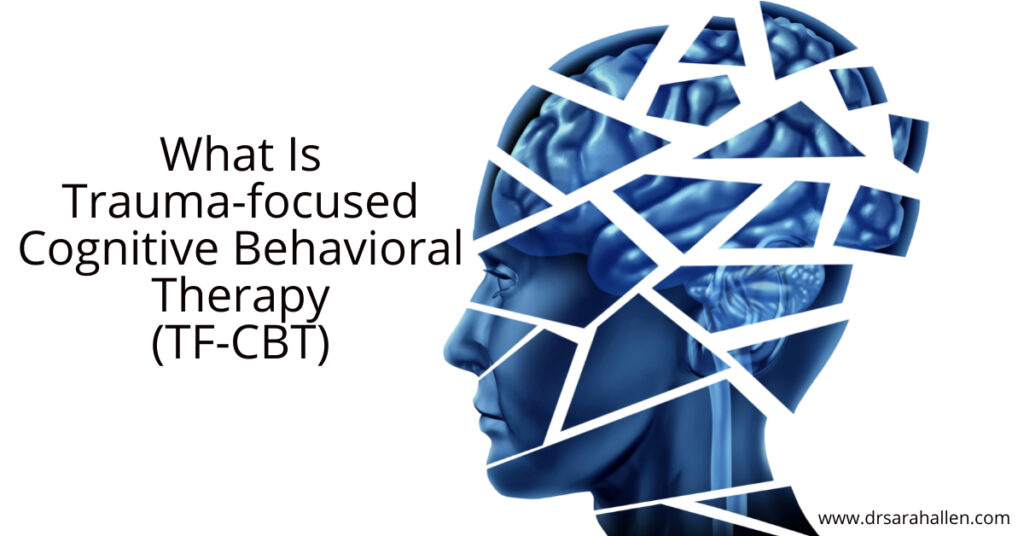
Trauma-Focused Cognitive Behavioral Therapy, or TF-CBT, is a specialized form of therapy designed to help adults process past trauma. This therapy aims to provide a safe space for individuals to explore their traumatic experiences without feeling judged. By focusing on both the emotional and cognitive aspects of trauma, TF-CBT offers a balanced approach to healing.
I’ve seen firsthand how powerful TF-CBT can be for my clients. Many adults struggle with the lingering effects of trauma that can disrupt their daily lives. Symptoms like flashbacks, anxiety, and depression can make it hard to move forward. TF-CBT helps by breaking down these complex emotions into manageable parts.
What Is Trauma-Focused Cognitive Behavioral Therapy (TF-CBT)
Trauma-Focused Cognitive Behavioral Therapy (TF-CBT) is a treatment method specifically designed to address the emotional and psychological impact of trauma. This type of therapy combines elements of cognitive-behavioral therapy with trauma-sensitive approaches. It helps individuals confront and process traumatic experiences in a structured and supportive environment.
TF-CBT aims to reduce trauma-related symptoms by integrating cognitive restructuring, exposure techniques, and skill development. These components work together to reframe negative thoughts, desensitize trauma-related triggers, and enhance coping strategies.
In my practice, I’ve noticed that TF-CBT provides a comprehensive framework for addressing both the cognitive and emotional aspects of trauma. By focusing on thought patterns and emotional responses, this therapy promotes healing and supports long-term mental health. This approach allows clients to regain control over their lives and move forward with greater resilience.
Goals and Benefits of TF-CBT for Adults
The primary goal of TF-CBT is to help individuals process trauma in a way that reduces its emotional and psychological impact. This therapy aims to transform the trauma into a manageable part of one’s life, rather than something overwhelming. One key objective is to change negative thought patterns related to the trauma, helping individuals view their experiences from a more balanced perspective.
Another goal is to reduce symptoms such as anxiety, depression, and PTSD. TF-CBT equips individuals with coping mechanisms and relaxation techniques that aid in managing these symptoms. This makes it easier for them to handle stress and navigate everyday challenges.
TF-CBT is especially beneficial for adults who have experienced complex trauma. These individuals often have deep-seated emotional scars that affect their daily functioning. By providing a structured approach to address these issues, TF-CBT helps to break the cycle of negative thoughts and behaviors that can perpetuate distress.
Through my work, I’ve seen how TF-CBT can lead to meaningful improvements in the quality of life. Clients often report feeling more empowered and less burdened by their past. This therapy offers hope and a pathway to recovery for those facing the long-lasting effects of trauma.
Understanding Complex PTSD Symptoms
Complex PTSD, or C-PTSD, arises from long-term trauma, often involving multiple events or prolonged exposure to traumatic situations. These experiences can lead to more severe symptoms than typical PTSD.
Common symptoms of C-PTSD include intense feelings of abandonment, chronic anxiety, and difficulty controlling emotions. Individuals may experience dissociation, where they feel detached from reality, or have intrusive thoughts and flashbacks that disrupt daily life.
Sleep disturbances and physical symptoms, such as headaches or stomach problems, are also prevalent. People with C-PTSD often struggle with relationships, fearing trust or attachment. This condition can make it hard to feel safe or connected, affecting friendships and family dynamics.
Recognizing these symptoms is crucial for seeking the right help. In my practice, I’ve seen how understanding these signs can pave the way for effective treatment. This awareness allows individuals to make sense of their experiences and reinforces that they are not alone in their struggles.
Core Components of TF-CBT
Focus on Trauma Processing
TF-CBT actively encourages individuals to confront and discuss their traumatic experiences. This takes place in a safe and supportive setting, allowing clients to process their trauma without feeling overwhelmed. Through guided exercises, they can face their past and start healing.
Cognitive Restructuring
In this component, individuals identify and challenge negative thoughts related to their trauma. By reframing these thoughts, they can reduce emotional distress and gain a new perspective on their experiences. This structured approach helps them understand the impact of their thoughts and fosters healthier thinking patterns.
Exposure Therapy
Exposure therapy involves gradually exposing individuals to reminders of their trauma in a controlled environment. This helps desensitize their reactions over time. By facing these triggers in a safe space, clients learn to manage their responses and lessen the power of traumatic memories.
Coping Skills Development
Developing coping skills is a vital part of TF-CBT. Clients learn relaxation techniques, emotion regulation strategies, and other methods to manage difficult emotions. These skills help them deal with stress and maintain emotional balance in their daily lives.
Psychoeducation
Psychoeducation provides clients with information about trauma and its typical effects. This knowledge helps normalize their experiences, reducing feelings of guilt or shame. Understanding the science behind their symptoms empowers clients and supports their recovery journey.
Research Supporting TF-CBT for Adults
TF-CBT is supported by extensive research, showing its effectiveness in treating trauma-related symptoms in adults. Studies have consistently shown that TF-CBT can reduce PTSD symptoms, improve emotional regulation, and enhance overall well-being. For instance, a study published in the Journal of Traumatic Stress found that TF-CBT led to significant improvements in PTSD symptoms among adult survivors of trauma. This evidence highlights the potential of TF-CBT to make a positive impact on those struggling with the aftermath of trauma.
Conclusion
Trauma-Focused Cognitive Behavioral Therapy offers a structured and supportive way to address trauma. By understanding and managing symptoms of complex PTSD, TF-CBT helps individuals regain control over their lives. Core components such as trauma processing, cognitive restructuring, exposure therapy, coping skills, and psychoeducation work together to support healing and recovery.
For personalized support in navigating trauma, reach out to Dr. Sarah Allen. My expertise in TF-CBT and anxiety therapy can help you on your path to recovery. Visit my website to learn more about how I can assist you. I am here to help.

If you have any questions, or would like to set up an appointment to work with me and learn how to reduce anxiety, please contact me at 847 791-7722 or on the form below.
If you would like to read more about me and my areas of specialty, please visit Dr. Sarah Allen Bio.
Dr. Allen’s professional licenses only allows her to work with clients who live in IL, FL & the UK and unfortunately does not allow her to give personalized advice via email to people who are not her clients.
Dr. Allen sees clients in person in her Northbrook, IL office or remotely via video or phone.

What Can I Read That Helps Me While I Am Waiting For My First Appointment With Sarah?
Download this free booklet to gain valuable insights and practical strategies for managing anxiety and worrying.




































